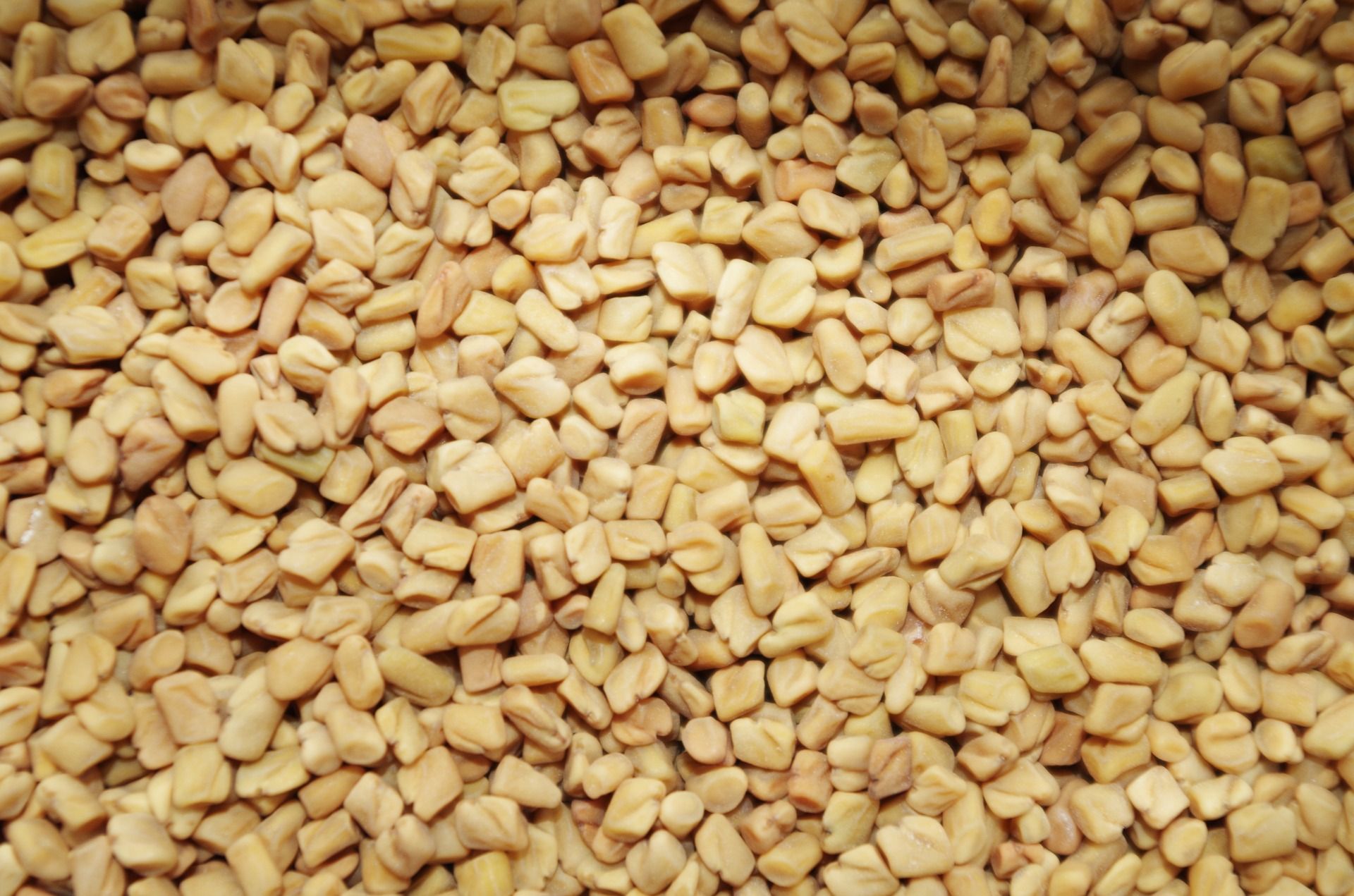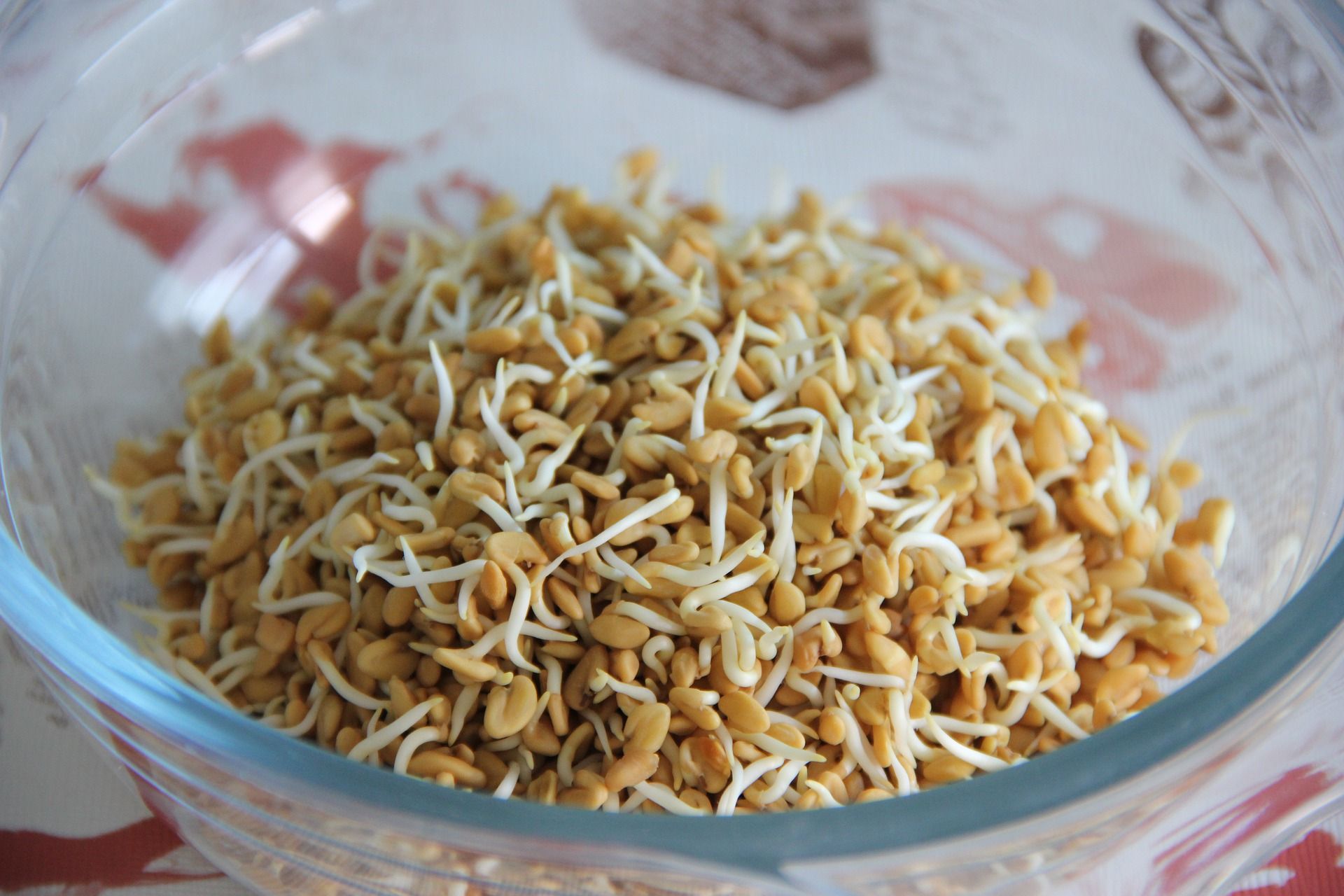Fenugreek Intake While Breastfeeding
Fenugreek seed extract, is most famous for its milk supply benefits, as it is an excellent galactagogue for inducing lactation.

Breastfeeding and Fenugreek
What is Fenugreek (Methi)?
Fenugreek Methi seeds "Trigonella foenum-graecum" have been used as a herb and a spice. It is grown in India, Egypt, and Morocco. Fenugreek has been used in foods to treat medical conditions in many cultures.
Fenugreek seed extract is most famous for its milk supply benefits, as it is an excellent galactagogue for inducing lactation.

Master Your Milk Supply
Never worry about your milk supply ever again! This is a 5-part video series designed to help breastfeeding mothers maximize their milk production. This course is an excellent resource for mothers who are concerned about their baby not getting enough breast milk, frustrated with minimal pumping results, or fearful of losing their milk supply. The video series offers step-by-step lessons that are available on-demand and accessible across all devices.
Health Benefits of Fenugreek Seeds
- One of the most significant fenugreek benefits is that it is used to increase breastmilk supply.
- Steeped fenugreek seeds can be used in a poultice for mastitis and engorgement.
- To treat sinus problems naturally while breastfeeding.
- To fight infections naturally and safely while breastfeeding.
- To reduce lung congestion.
- Reducing menstrual pain.
- Fenugreek teas are used to lower fever.
- Fenugreek can be used as a breast enhancer, promoting breast cell growth.
- It has been used as an aphrodisiac in women.
- It contains antioxidants that prevent aging.
- Fenugreek's cholesterol-lowering properties are famous.
- Fenugreek weight loss: Fenugreek properties stimulate insulin secretion, converting blood glucose into energy, which helps reduce body fat production. The soluble fenugreek fiber in the seeds can create a sensation of "fullness" and reduce appetite.

Is Fenugreek Safe?
Taking Fenugreek for Breastfeeding & the Possible Side Effects.
- People that use fenugreek herbs often smell like curry or maple syrup.
- Their urine may resemble the color and smell of maple syrup.
- Fenugreek and breast milk: Mom's breast milk may start to smell like maple syrup.
- Some people may be allergic to Fenugreek, which could cause swelling tongue, throat, breathing problems, and even hives.
- Fenugreek blood sugar: Blood sugar levels can drop if taken with other medications.
- Some women may experience a runny tummy.
- Some properties of Fenugreek can cause uterine contractions: Which is why it should not be used if pregnant.
- Eating too many Fenugreek seeds in a day can cause stomach cramps. It is not recommended to eat more than 100g.
- The baby might become a little fussy and may have runny stools.
There are many fenugreek health benefits and uses, but precautions should be taken in the case of illness and certain medications; first, speak to your health practitioner about fenugreek safety taken with your specific medications.
How Does It Work?
Fenugreek contains some plant chemicals similar to estrogen (female sexual hormone). The hormone stimulates sweat, stimulating the breast, as the breast is a modified sweat gland.
Fenugreek can increase breast milk supply within a day; once the mother's milk supply is up, it should stay up without taking more Fenugreek.

The Where and How
How to use Fenugreek
- You can buy Fenugreek over the counter in the form of pills, fenugreek extract (fenugreek liquid), or fenugreek seeds at most herbal stores.
- A fenugreek herbal supplement can be purchased without a prescription.
- It can also be taken as a tea, but fenugreek tea is terribly bitter to drink for most. How to make fenugreek tea: Seep one tsp of fenugreek seeds in a cup of boiling water for 15 minutes. The fenugreek tea should be taken at least three times daily.
- Fenugreek leaves from the fenugreek plant can be used in cooking and are enriched with minerals like Potassium, Calcium, and Iron.
- The fenugreek dosage needed is approximately six fenugreek supplement capsules daily (3500mg daily) or until your urine smells like maple syrup. Fenugreek can be taken short-term or long-term.
- If taken in powder or seed form, you can take 1 tsp three times daily mixed with water or juice. Taking Fenugreek in seed form may cause stomach cramps.
- The easiest and tastiest way I have found is sprouting the seeds of fenugreek whole; soak in a glass of clean water, then put them in a dark place with a bit of water covering only part of the seeds. Keep rinsing them with clean water. Within five days, you can add your fenugreek sprouts to your salads.
Sprouting Fenugreek Seeds
Do not Use Fenugreek. If you…
- Are pregnant.
- Have a nut allergy.
- Have diabetes or hypoglycemia.
- Have asthma.
- Have migraines.
- Have low blood pressure or heart disease.
- Are on medications such as glipizide, insulin drugs, heparin, warfarin, ticlopidine, and MAOIs.
Top 10 Lactogenic Foods
Comments
Uses of Fenugreek
by Kani (Chennai, Tamilnadu, India)
"Hi, I have been eating 1 tsp of Fenugreek seeds with one glass of water after breakfast, lunch, and dinner for the past three days. But I don't see much improvement in my breast milk. Please advise any other ways to increase my breast milk supply."
Re: Other ways of increasing your milk supply
by: Tracy
"Hi Kani, why do you think your milk supply is low? Please first ensure that you have a low milk supply by checking the signs of low milk supply on this page..." is my baby drinking enough."
Were you eating the seeds whole? I don't think they work well like that, and I'm sure you might get cramps too!
You are supposed to seep them in water or grind them or sprout them. Maybe, they will work better if you do this?
Sometimes it helps if you combine a few methods of increasing milk supply...
You can continue to take the Fenugreek but then also...
- Allow your baby to comfort feed if they want to. You can never breastfeed too often; the more you breastfeed, the more milk you will start to produce.
- You can pump between feedings or after breastfeeding to ensure your breasts are as drained as possible.
- You can use warm compresses on your breasts to help your milk flow during breastfeeding.
- Oatmeal has been found to help most moms increase breast milk supply, so try eating a bowl every morning if you can.
- Are you drinking enough water? Your body needs to be hydrated to maintain a full milk supply. Try drinking at least 2 L of water daily.
- One good way to increase your supply is to massage your breasts in-between feedings.
- Breast compression during breastfeeding can also help your milk flow better and increase supply in the long run.
Other pages that may be helpful:
Galactagogues and power pumping."
Fenugreek Use While Pregnant
by Michael (Minneapolis)
You shouldn't use Fenugreek if you're pregnant? Why not?
Re: Fenugreek during pregnancy
by: Tracy
Hi, Fenugreek, in medicinal doses (not amounts used in food preparation), is considered a uterine stimulant.
Fenugreek is often used as an aid to inducing labor and is an emmenagogue; this is why it is not recommended during pregnancy. Especially late in pregnancy, unless in labor.
